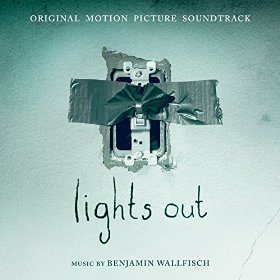

Geils Band were kicking themselves when their lame Wolf-less album tanked. That it actually became a hit makes it even sweeter.

Lights out song free#
It is soul music for a soulless time made by a guy who sounds very glad to be free and ready to hit the charts. The rest of the record isn't corny at all. These mis-steps don't really wreck the listening experience they are so corny that they are almost good. Wolf's vocal is pretty embarrassing, though. The jokey "Mars Needs Women" is better only because Jonzun brings in some wacky electro-sounds straight off a Jonzun Crew cut. Something like "Oo-We-Diddley-Bop!" is very dated with Wolf gamely trying to rap and coming off like the male Debbie Harry.
Lights out song full#
The tracks that make the full leap into '80s dance-pop perhaps don't stand up as well. Geils-like, the electronic reggae ballad "Poor Girl's Heart," the Hall & Oates-y "Here Comes That Hurt Again," and the rollicking "Pretty Lady," which manages to overcome some annoying background warbling from Mick Jagger to be what would have been one of the best late-period J. Other highlights are "Baby Please Don't Go," a bubbling Motown-styled number that sounds very J. Wolf nails the quietly urgent tone of the lyrics and delivers probably the most sensitive and sweet vocal of his career. Apart from the title track, the moderate charter "I Need You Tonight," a moody ballad with trademark- '80s clicking guitars, peppy synths, and a dorky surf guitar solo, is the best song on the record. With Michael Jonzun behind the board, the album is slicker than ice and loaded with cheesy synths, electronic drums, reverb, and "sweetening." It is also very well arranged the synthetic sounds never overtake Wolf's gritty soul and personality - really a perfect balance of soul and machines that only a few artists were able to pull off in the '80s. Wolf casts off the responsibilities of fronting an arena rock band and heads straight for the pop jugular, leaving bluesy guitar licks and harmonica bleating in his rearview. Boasting a huge hit single, the bouncing, machine funk monster title track, and a raft of catchy, candy coated' '80s pop, the album is one of the hidden gems of the era. Geils Band in 1983 because co-leader Seth Justman turned down a batch of new songs Wolf had written with Don Covay and Michael Jonzun, he made the most of it and released the great Lights Out album.


 0 kommentar(er)
0 kommentar(er)
